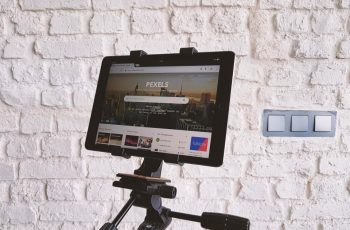Once you’ve decided that your business needs a blog (and it definitely does) putting the content together can be difficult. For a long time it was recommended that as long as you kept to a minimum of 350 to 400 words, Google would be happy, your SEO would be spot on and it would all be fine. Further research has now shown that longer is better and whilst several 400 word blog posts can be effective, you may have better results with less posts which are longer in length.
Many people would tell you that shorter is better because audiences only ‘skim read’ blog posts whilst experts argue the point that 600 to 1000 words and even as many as 2000-3000 is more effective. Longer content is shown, in most instances, to rank higher in search engine result pages (SERPs), attract more inbound links and therefore achieve better conversions.
Give Google what it wants
Google likes long content. It’s been shown in an examination carried out by serpIQ that content which ranks most successfully for keywords via Google tends to be longer than the 350-400 word mark. They examined the SERPs for over 20,000 keywords and looked at the length of the content on the pages which sat in the top ten.
The top ranked pages contained over 2,450 words on average whilst all those in the top ten topped 2000 words. If you’re writing to please Google, which should perhaps be a consideration but not the whole purpose of your copy, then longer really is better.
Give Users what they want
Pleasing Google is one thing but in most instances your content is in place to convince users to engage or make a purchase of some sort. Copy that’s perfect for Google may not necessarily be perfect for your users so think about their experience too.
Skim reading is a fact of life but skim reading longer content is perfectly possible. It can be extremely difficult to skim read something so short that you may miss key pieces of information if you don’t read every word. With a longer piece, broken up with images, headings and even videos, users can pick out the sections relevant to them and skim the rest.
See Inbound Links Increase
Inbound links are like gold dust and are completely essential for the position of your site in search rankings to improve. Google determines your website’s authority in many ways including the inbound links. Moz, the leading inbound marketing brand, have conducted a study to show the correlation between post length and links.
Moz looked at their 500 most popular posts by word count and it showed a realistic correlation between longer articles and the increased number of inbound links they attract.
Improve Conversion Rate
A/B testing by other industry experts has shown that longer pages convert better than shorter versions, with an average of 7-10% better conversion. It has also been suggested that a lot of longer content is of higher quality and the leads generated from these content were of a considerably higher quality too.
Tips for your Content
Although all this evidence suggests you should look to develop longer content, the optimal length is completely dependent on your target audience and the purpose of the text. Longer content does tend to generate better quality leads and SERPs but the word count you choose will depend on your audience. It’s also never a good idea to stretch out your content for the sake of it. Long copy that rambles and has no clear purpose won’t generate the results you want and some topics and themes will simply work better in short. Finally, unnecessary words and filler text for the sake of it will never serve you well. Both your readers and the search engines will simply switch off.
If you want your blog content to succeed and help life your SERPs then consider the length of each piece carefully. Plan before you begin and don’t worry if you’ve exceeded your usual length – chances are that will stand you in good stead.


